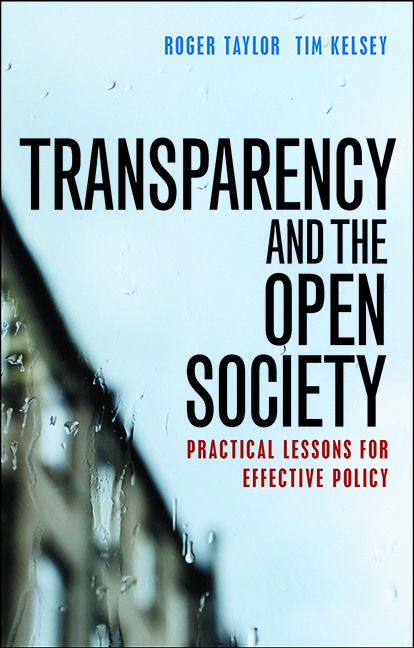2 - Critiques of transparency
Published online by Cambridge University Press: 05 April 2022
Summary
Critical theory about transparency has developed rapidly in recent years in response to the strong and sometimes unquestioning support for transparency across widespread areas of government. Below we outline the key lines of such criticism, from the costs to harmful outcomes and the question of efficacy.
The financial cost of transparency
Access to information rights are sometimes described as if they are relatively cost free – as if it is nothing more than making existing information publicly available. In reality there are substantial associated costs. There is the cost of checking that exclusions such as privacy do not apply and redacting information as appropriate. There is the cost of collating information in a format intelligible to someone outside the organisation.
Publishing data brings its own set of costs. All data sets have problems of incomplete or inconsistent recording. Organisations use work-arounds and local knowledge to deal with these internally. It can be a significant piece of work to format data into the most consistent, complete and intelligible format for outside consumption, including production of jargon-free data descriptions and data labelling.
Furthermore calls for transparency in areas such as food labelling can require the compiling of whole new datasets and analyses.
Then there are the costs that follow publication of information that result from the need to respond to issues raised. With regard to access to information (ATI) this primarily involves media handling activities and developing answers to likely follow-on questions.
The handling costs rise to very high levels when we consider transparency around regulatory performance management in public services. Considerable efforts are made to manage internal and external communications around this information, as well as efforts to improve the performance of organisations. The latter activity may be the intended result of the information being public. However these activities also include ‘gaming’ to improve appearances and defensive efforts to argue against the implications of poor performance.
To the extent that access to information is a right, the cost argument is irrelevant. To the degree that it is instrumental, it is sensible to ask the question of how the benefits and costs compare.
- Type
- Chapter
- Information
- Transparency and the Open SocietyPractical Lessons for Effective Policy, pp. 31 - 52Publisher: Bristol University PressPrint publication year: 2016



